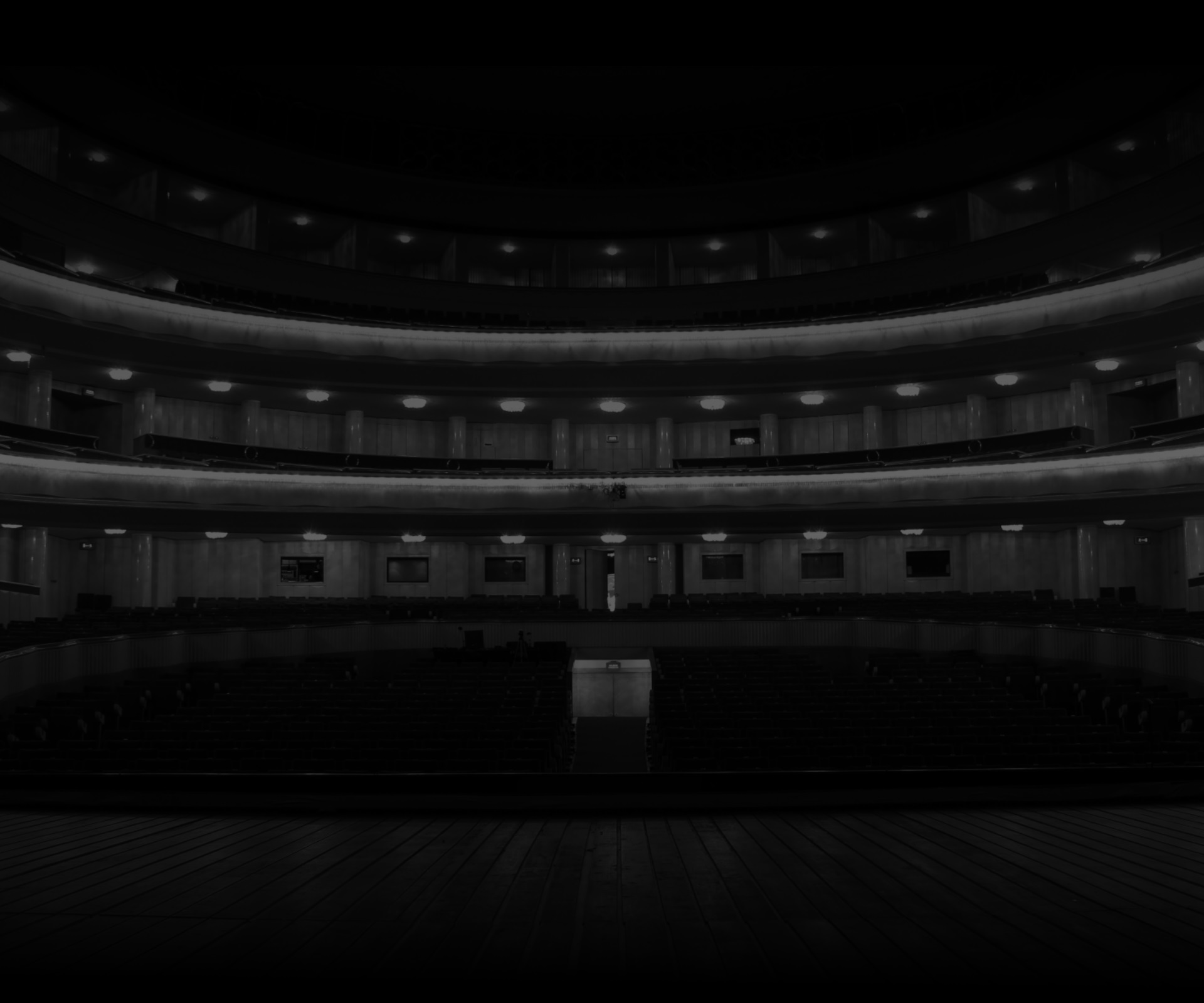Michał Borczuch was born in 1979 in Kraków. Initially, he studied at the Faculty of Graphic Arts at the Academy of Fine Arts, but graduated in directing from the Ludwik Solski Academy of Dramatic Arts in Kraków. His debut was Małgorzata Owsiany’s COMPOnents put on at the Stary Theatre in 2005. When studying theatre direction he was an assistant to Krystian Lupa, working with him on Mozart’s The Magic Flute, which premiered at the Theater an der Wien in 2006. For a year Borczuch worked with Patrice Chéreau within the framework of the Rolex Mentor and Protégé Arts Initiative. On three occasions he was nominated for Paszport Polityki, awarded by Polityka, Poland's leading weekly magazine.
The jury praised his 'sensibility that lets him create amazing new worlds that are unobvious, surprising, yet always very personal, as well as his unique way of working with actors, which results in equally unique creations verging on buffoonery and painful exposure'.
Michał Borczuch has collaborated with socially disabled children and autistic people. Lepiej tam nie idź (You’d Better Not Go There) (2013) was made with the participation of children from an orphanage in Szamocin, who designed the set, lighting, and audio visual materials. Their perspective contributed to the vision of capitalism of the Polish peripheries presented in the piece. In Paradiso (2014), a theatrical dialogue between professional actors and amateurs with various stages of autism evolved into a humanistic parable surprising with its novelty.
In 2007 actors staring in Borczuch's works started to make a name for themselves. In Frank Wedekind’s Lulu Marta Ojrzyńska created the character of an underage prostitute without shocking with pathological sexuality. As the first director in Poland Borczuch used an uncensored version of Wedekind’s play, yet he stayed detached from its naturalistic story. In Werther (2009), Krzysztof Zarzecki played the spectre from Goethe’s epistolary novel. The life attitude of the Romantic hero was ridiculed as an empty pose, an existential experience of 'a man without qualities' and that of an outsider at the same time.
In 2009 Michał Borczuch directed in Warsaw Oscar Wilde’s The Picture of Dorian Gray. Inspired with camp aesthetics, the director created a portrait of the contemporary generation of urban 30-year-olds. It was put on at Warsaw’s TR to mark the comeback of one of the most important theatres in Poland. In 2010 The Metaphysics of a Two-Headed Calf by S. I. Witkiewicz was produced. At the time, Aneta Kyzioł wrote in POLITYKA: 'If Witkacy’s Tropical Madness directed by Grzegorz Jarzyna at the same theatre 13 years before was a portrait of the decline of the world of values and the birth of chaos, The Metaphysics of a Two-Headed Calf shows the consequences of that process for the next generation'.
The year 2012 brought Michał Borczuch’s debute at the Schauspielhaus Theatre in Dusseldorf. The director put on Svetlana Alexievich’s War’s Unwomanly Face, whose characters are women soldiers fighting for their homeland in high heels. The director invited Tomasz Śpiewak to work as a dramaturge of the piece. They continued their collaboration on Quay West. Return to the Desert by Bernard-Marie Koltes (2013), a performance aiming to shake the viewers out of their rhythm and their habits. In his earlier Hans, Dora, and the Wolf (2012) Borczuch 'made a direct attack on the contemporary culture of analysis shaped by Sigmund Freud' (Joanna Wichowska).
As a participant of The Rolex Mentor and Protégé Arts Initiative (a programme for the most talented young artists from all around the world) Borczuch succeeded in building a partnership with Patrice Chéreau, a French film and theatre director. The two artists, different in their approach to the text and in the way they structure the story, found a common denominator in their exploration of the nature and aims of theatre as art. At the end of the programme, Borczuch, along with seven other artists from all around the world, presented in Venice sketches for his staging of Apocalypse later premiered at the Nowy Theatre in Warsaw (2014). The characters included Pier Paolo Pasolini, Oriana Fallaci and Kevin Carter – all great but at the same time petty critics of culture and society in which they lived and died.
Borczuch avoids great narratives and 'important topics'. He sticks to the spheres of everyday life and privacy. He explores issues of death, weakness, and self-destruction; he maintains an ironic perspective, believes ugliness rather than beauty, yet stays away from all kinds of dogmatism in this respect.





